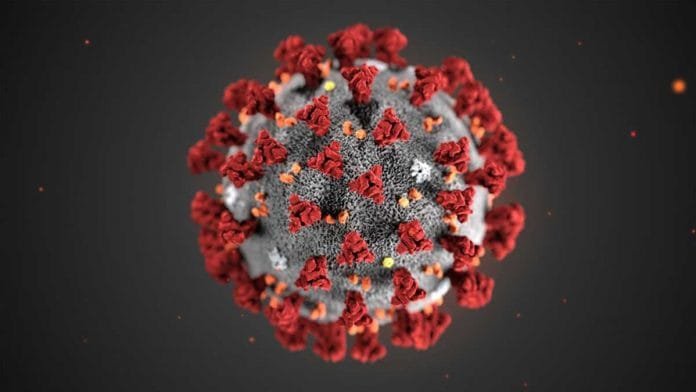
As Coronavirus death toll surpasses 1,000 the World health authorities name the virus COVID-19.
The new coronavirus disease that was first identified in Wuhan has received an official name from the World Health Organization: “COVID-19.”
“COVI” comes from coronavirus. The “D” stands for disease. The 19 represents 2019, the year the virus was first identified, in December.
The director general of the World Health Organisation, Tedros Adhanom Ghebreyesus, noted that the new name makes no reference to any of the people, places or animals associated with the coronavirus. The goal was to avoid stigma.
Under international guidelines, the W.H.O. “had to find a name that did not refer to a geographical location, an animal, an individual or group of people, and which is also pronounceable and related to the disease,” he said on Twitter.
? BREAKING ?
— World Health Organization (WHO) (@WHO) February 11, 2020
“We now have a name for the #2019nCoV disease:
COVID-19.
I’ll spell it: C-O-V-I-D hyphen one nine – COVID-19″
–@DrTedros #COVID19 pic.twitter.com/Kh0wx2qfzk
The name will apply for the “entire spectrum” of cases, from mild to severe, according to a WHO spokesperson.
The disease had been given the temporary name “2019-nCoV” by WHO in January, identifying the pathogen as a novel (previously unidentified, that is) coronavirus that first emerged in humans in 2019.
The death toll from the coronavirus epidemic is continuing to climb, Chinese officials said on Tuesday. Dr. Tedros said that 1,017 people had died from the coronavirus. Most of the deaths occurred in Hubei Province.
The number of confirmed infections in China also grew, to at least 42,700 from about 40,000 a day earlier. Most of the infections are in Hubei, though the daily tally of new cases there fell compared with previous days.
Hubei recorded 2,097 new infections on Monday, compared with 2,618 a day earlier.
There are 393 COVID-19 cases abroad, in a total of 24 countries.
“With 99 percent of cases in China, this remains very much an emergency for that country, but one that holds a very grave threat for the rest of the world,” Dr. Tedros said.
Nearly a third of the confirmed coronavirus cases in Tianjin, a city of more than 15 million about 70 miles southeast of Beijing, have been linked to one department store, adding to fears about rapid transmission in tightly clustered communities.
Of 102 confirmed cases in the city, at least 33 patients worked or shopped at a department store in the Baodi district, or had close contact with employees or customers, according to the Tianjin health authorities. Many of them had no history of travel to Wuhan, the city where the outbreak emerged.
Officials estimated that 11,700 customers had visited the shopping complex during a period in late January. The authorities said that those customers would be quarantined, and that the store itself, which they did not identify, had been sealed and disinfected.
It was not immediately clear how the authorities had tracked the shoppers, but health officials in the city have put out alerts on social media and on state news outlets urging residents to contact the government if they visited the store recently. News reports also said residents had been asked at various checkpoints in the city if they had been there.
The outbreak poses a “very grave threat for the rest of the world,” WHO Director-General Tedros Adhanom Ghebreyesus said on Tuesday, addressing more than 400 researchers and national authorities at the start of a two-day meeting to agree on a road map for finding a cure and vaccine for the virus.
“The bottom line is solidarity, solidarity, solidarity. That is especially true in relation to sharing of samples and sequences,” Tedros said. “To defeat this outbreak, we need open and equitable sharing, according to the principles of fairness and equity.”
In China, President Xi Jinping called for “decisive” measures to tackle the outbreak, in a visit to a frontline hospital in Beijing. Xi wore a face mask and had his temperature checked while visiting medical workers and patients affected by the outbreak. He also said the situation was still “very grave,” according to state broadcaster CCTV.
Meanwhile, Hong Kong Chief Executive Carrie Lam said her government would consider placing tracking devices on people who violate the regulations of their quarantine. She has also called for “social cohesion” during the outbreak and urged residents to stay home as much as possible.
Hazy financial outlook
The outbreak is also creating a grim outlook for China’s economic growth rate, which could decrease by as much as one percentage point in 2020, according to a senior member of a government think tank.
Zeng Gang, vice chair of the National Institution for Finance and Development, compared the current crisis with the SARS epidemic of 2003, when China’s growth was reduced by about two percentage points over a single fiscal quarter.
“At present, according to different scenario assumptions, researchers expect the negative impact of the epidemic on full-year GDP growth to be in the range of 0.2% to 1%,” he said. However, if the official response to the epidemic is swift and effective, long-term growth trends might not be significantly affected.
He also added that the “employment situation is not optimistic,” regarding potential problems following economic stress placed on small companies because of the virus.
Support Independent Journalism Today
Our unwavering dedication is to provide you with unbiased news, diverse perspectives, and insightful opinions. We're on a mission to ensure that those in positions of power are held accountable for their actions, but we can't do it alone. Labour Heartlands is primarily funded by me, Paul Knaggs, and by the generous contributions of readers like you. Your donations keep us going and help us uphold the principles of independent journalism. Join us in our quest for truth, transparency, and accountability – donate today and be a part of our mission!
Like everyone else, we're facing challenges, and we need your help to stay online and continue providing crucial journalism. Every contribution, no matter how small, goes a long way in helping us thrive. By becoming one of our donors, you become a vital part of our mission to uncover the truth and uphold the values of democracy.
While we maintain our independence from political affiliations, we stand united against corruption, injustice, and the erosion of free speech, truth, and democracy. We believe in the power of accurate information in a democracy, and we consider facts non-negotiable.
Your support, no matter the amount, can make a significant impact. Together, we can make a difference and continue our journey toward a more informed and just society.
Thank you for supporting Labour Heartlands











